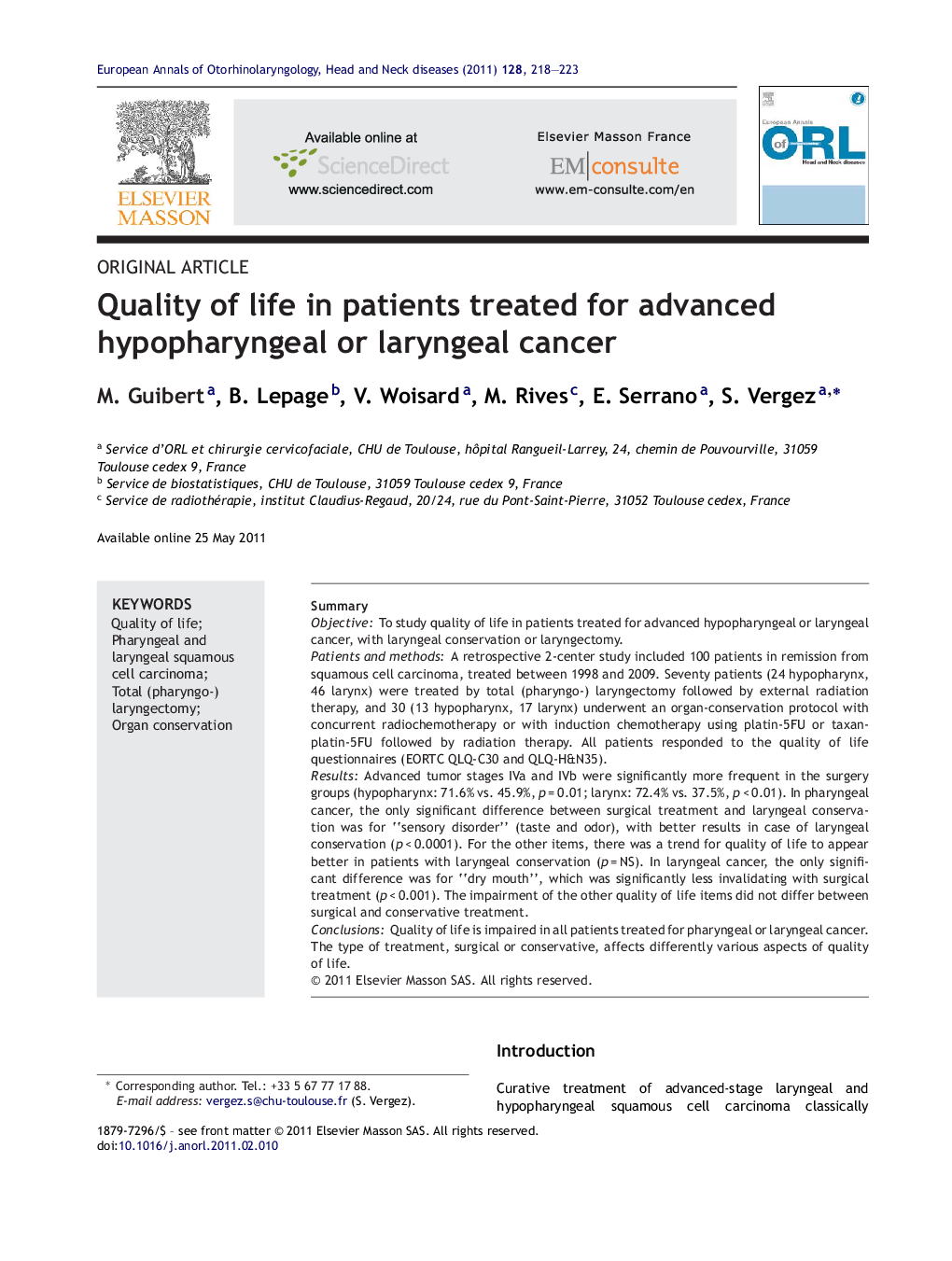| Article ID | Journal | Published Year | Pages | File Type |
|---|---|---|---|---|
| 4110396 | European Annals of Otorhinolaryngology, Head and Neck Diseases | 2011 | 6 Pages |
SummaryObjectiveTo study quality of life in patients treated for advanced hypopharyngeal or laryngeal cancer, with laryngeal conservation or laryngectomy.Patients and methodsA retrospective 2-center study included 100 patients in remission from squamous cell carcinoma, treated between 1998 and 2009. Seventy patients (24 hypopharynx, 46 larynx) were treated by total (pharyngo-) laryngectomy followed by external radiation therapy, and 30 (13 hypopharynx, 17 larynx) underwent an organ-conservation protocol with concurrent radiochemotherapy or with induction chemotherapy using platin-5FU or taxan-platin-5FU followed by radiation therapy. All patients responded to the quality of life questionnaires (EORTC QLQ-C30 and QLQ-H&N35).ResultsAdvanced tumor stages IVa and IVb were significantly more frequent in the surgery groups (hypopharynx: 71.6% vs. 45.9%, p = 0.01; larynx: 72.4% vs. 37.5%, p < 0.01). In pharyngeal cancer, the only significant difference between surgical treatment and laryngeal conservation was for “sensory disorder” (taste and odor), with better results in case of laryngeal conservation (p < 0.0001). For the other items, there was a trend for quality of life to appear better in patients with laryngeal conservation (p = NS). In laryngeal cancer, the only significant difference was for “dry mouth”, which was significantly less invalidating with surgical treatment (p < 0.001). The impairment of the other quality of life items did not differ between surgical and conservative treatment.ConclusionsQuality of life is impaired in all patients treated for pharyngeal or laryngeal cancer. The type of treatment, surgical or conservative, affects differently various aspects of quality of life.
